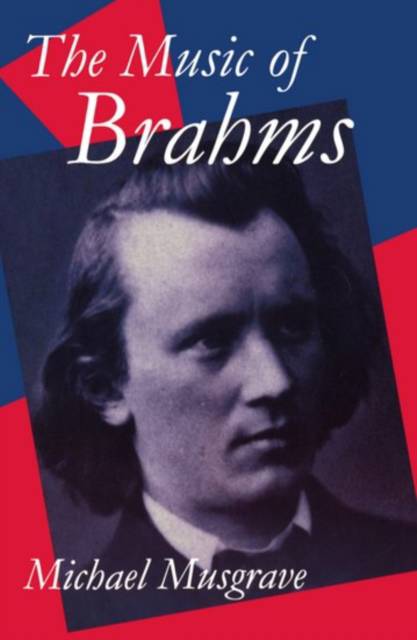
Door een staking bij bpost kan je online bestelling op dit moment iets langer onderweg zijn dan voorzien. Dringend iets nodig? Onze winkels ontvangen jou met open armen!
- Afhalen na 1 uur in een winkel met voorraad
- Gratis thuislevering in België vanaf € 30
- Ruim aanbod met 7 miljoen producten
Door een staking bij bpost kan je online bestelling op dit moment iets langer onderweg zijn dan voorzien. Dringend iets nodig? Onze winkels ontvangen jou met open armen!
- Afhalen na 1 uur in een winkel met voorraad
- Gratis thuislevering in België vanaf € 30
- Ruim aanbod met 7 miljoen producten
Zoeken
Omschrijving
Michael Musgrave presents a contemporary view of Brahms 150 years after his birth, seeing him not simply as the "conservative" figure so often stressed in the past, but as one who creatively reinterpreted a wider range of historical elements than any composer of his time. Brahms absorbed his studies directly into his music making and composition and in so doing helped to evolve not merely a personal language which was regarded as progressive and sometimes difficult by a range of contemporaries and successors, but also helped to establish an ethos of historical reference which anticipates the twentieth century. The Music of Brahms concentrates on the music, with Brahms's life discussed briefly in the introduction. The works are considered in four phases according to genre, with an emphasis on connection and on the development and elaboration of a unified language. The list of works includes recent discoveries and a calendar outlines the pattern of his musical life, including
relevant information concerning performances.
relevant information concerning performances.
Specificaties
Betrokkenen
- Auteur(s):
- Uitgeverij:
Inhoud
- Aantal bladzijden:
- 352
- Taal:
- Engels
- Reeks:
Eigenschappen
- Productcode (EAN):
- 9780198164012
- Verschijningsdatum:
- 28/04/1994
- Uitvoering:
- Paperback
- Formaat:
- Trade paperback (VS)
- Afmetingen:
- 232 mm x 152 mm
- Gewicht:
- 569 g

Alleen bij Standaard Boekhandel
+ 165 punten op je klantenkaart van Standaard Boekhandel
Beoordelingen
We publiceren alleen reviews die voldoen aan de voorwaarden voor reviews. Bekijk onze voorwaarden voor reviews.











